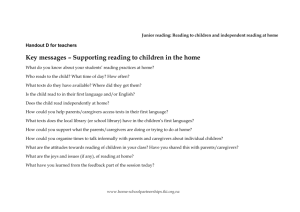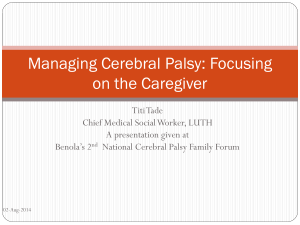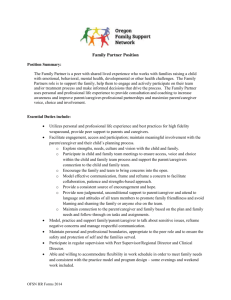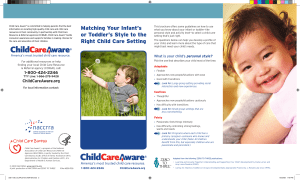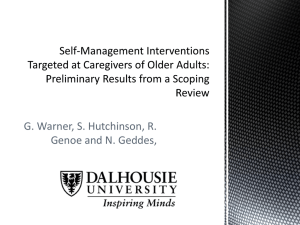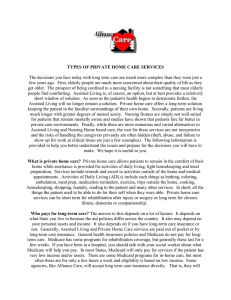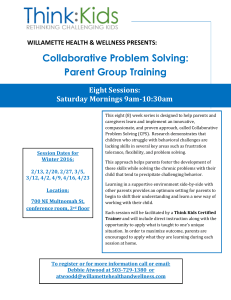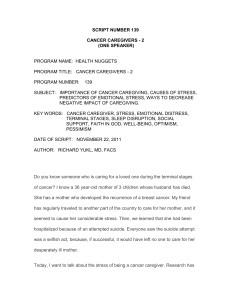Improving Institutional Care by Victor Groza
advertisement
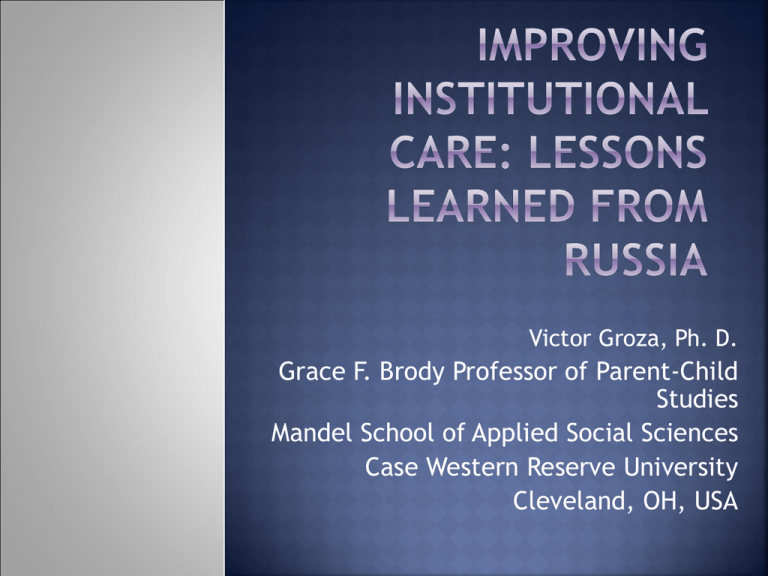
Victor Groza, Ph. D. Grace F. Brody Professor of Parent-Child Studies Mandel School of Applied Social Sciences Case Western Reserve University Cleveland, OH, USA Fill basic and psychosocial needs of children for their wholesome growth & development. Enable children to develop skills to be selfreliant. Staff do the best job they can This is not about what staff are doing wrong, but what can be done better to help children 4 Too many children for too few caregivers Staff do the best that they can given the situation; it is not about the staff but what is best for the children Babies need more than food, clothing and shelter; they need to be held when food, comforted when they cry, talked to when they are awake, and to attach to at least one caregiver During the first three years of life, brain development occurs which is crucial to focusing attention and cognitive skills that are crucial for planning, problem solving, critical thinking and good judgment. 6 Changes in the brain Immunization failure Developmental problems Institutionalized children experience 1 month of mixed developmental delay for every 3-4 months of institutionalization. Attachment problems 8 9 10 11 Survivor Behavior—Indiscriminate friendliness 12 1. 2. 3. Mixed age groups in each room One consistent staff for each room A daily program of activities Replicates family life Gives older children opportunity to observe an adult caring for a younger child Allows older children to participate in care giving Keeps siblings in the same location Different type of stress on care givers Allows care giver to know children Allows children to know caregiver Promotes attachment Children need structure every day during waking hours, including weekends Should be posted for all to see Should include children in choosing afterschool and weekend activities Allows volunteers to participate in the life of children beyond basic caregiving Children showed improvements in physical growth, cognition, language, motor, personal-social, and affect, with children having severe disabilities improving the most. Ongoing training of caregivers to promote warm, responsive care giving. Caregivers needs to be more emotionally available for children. Aim for each child having an early experience of ongoing interaction with his/her own close and emotionally available adult. Reactions to information What would be the barriers to implementing the changes? Groark, C. J., Muhamedrahimov, R. J., Palmov, O. I., Nikiforova, N. V., & McCall, R. B. (2005). Improvement in early care in Russian orphanages and their relationship to observed behaviors. Infant Mental Health Journal, 26(2), 96-109. Muhamedrahimov, R. J., Palmov, O. I., Nikiforova, N. V., Groark, C. J., & McCall, R. B. (2005). Changing social environment for young children living in Baby Homes. In V. M. Behterey (Ed.), Contemporary Psychology, Conference Abstracts (in Russian), (pp. 251-255). Kazan: Centre of Innovative Technologies, Kazan State University. The St. Petersburg-USA Orphanage Research Team (2008). The effects of early social-emotionalrelationship experience on the development of young orphanage children. Monographs of the Society for Research in Child Development, 73, Serial No. 291(3).


